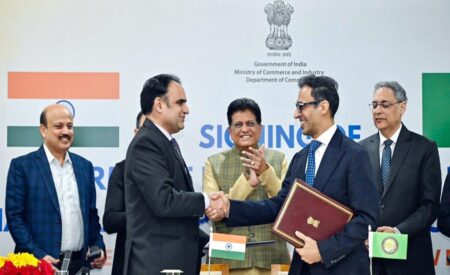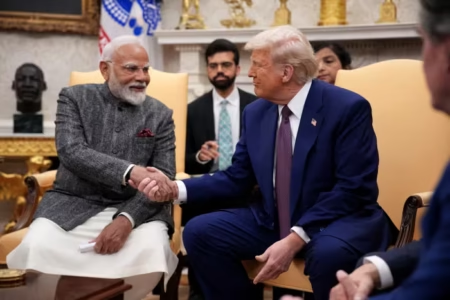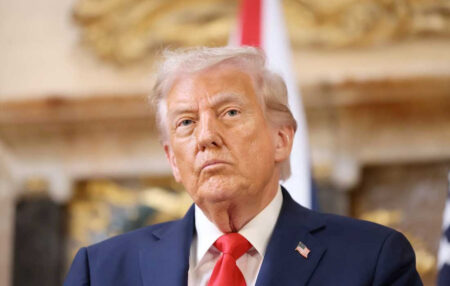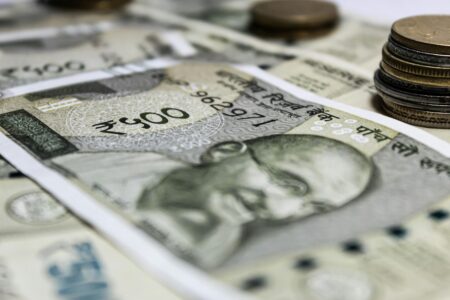Chancellor Olaf Scholz leads a high-level delegation to India, targeting growth and supply chain diversification.
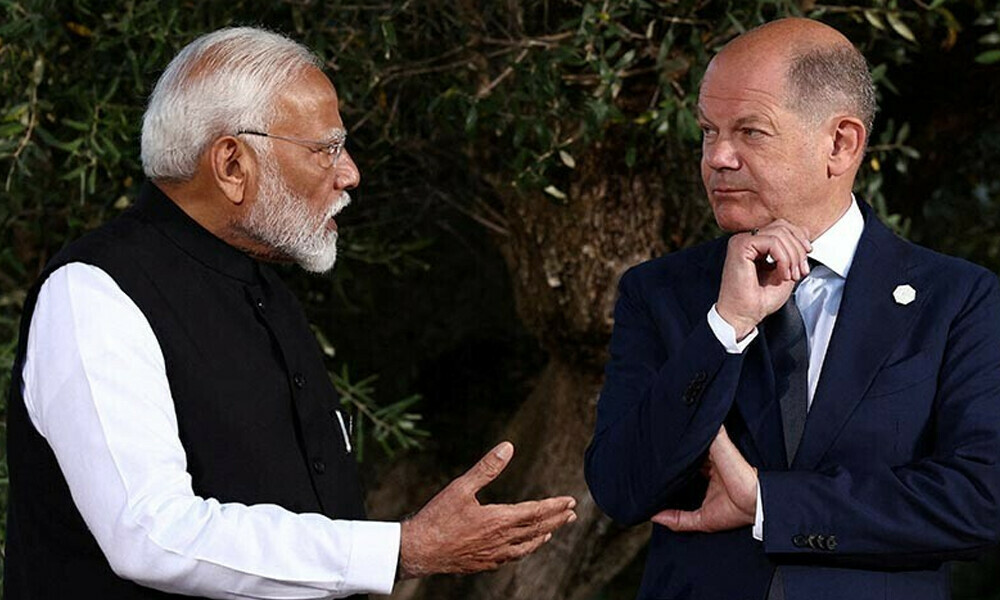
Chancellor Olaf Scholz is leading a high-level delegation to New Delhi this week, focusing on enhancing access to India’s vast market to reduce Germany’s dependence on China, even if India does not emerge as the “new China.” German companies, spanning sectors from automotive to logistics, are optimistic about India’s growth potential, driven by a skilled workforce, a favourable cost base, and an economic growth rate of around 7%.
This visit comes at a critical juncture for Germany, whose export-driven economy is facing its second consecutive year of contraction. There are growing concerns about a trade dispute between the European Union and China that could negatively impact German businesses. Following its previous reliance on inexpensive Russian gas before the Ukraine war in 2022, Germany has adopted a strategy aimed at decreasing its exposure to Beijing.
“India, the most populous country in the world, is a key partner of the German economy in the Indo-Pacific and plays a crucial role in diversifying the German economy,” said Economy Minister Robert Habeck. He emphasised the necessity of reducing critical dependencies and strengthening the resilience of German companies and their supply chains to and from Asia. Despite these ambitions, China remains the largest trading partner.
In 2022, German direct investments in India amounted to approximately €25 billion ($27 billion), representing about 20% of investments made in China. Volker Treier, head of foreign trade at the German Chamber of Commerce DIHK, projects that this share could increase to 40% by the end of the decade. “China will not disappear, but India will become more important for German companies,” Treier noted. He added that India serves as a litmus test for effective de-risking strategies focused on China due to its market size and economic dynamism.
Chancellor Scholz is expected to meet Indian Prime Minister Narendra Modi and preside over the seventh round of Indian-German government consultations. Economy Minister Habeck will arrive a day earlier to open the biennial Asia-Pacific Conference of German Business.
However, German firms have identified challenges such as bureaucracy, corruption, and India’s tax system as investment hurdles, according to a study by consultancy KPMG and the German Chambers of Commerce Abroad (AHK). Nevertheless, the outlook remains positive, with 82% of German firms expecting revenue growth over the next five years and 59% planning to expand their investments, up from 36% in 2021.
For instance, logistics giant DHL aims to invest €500 million in India by 2026 to leverage the fast-growing e-commerce market. “We see enormous growth potential in the Asia-Pacific region, of which India has a significant share,” stated division head Oscar de Bok.
Volkswagen, facing declining sales in China and high production costs at home, is exploring new partnerships in India for joint production, already operating two factories and having signed a supply deal with local partner Mahindra. The group’s finance chief, Arno Antlitz, noted the importance of recognising India’s market potential and the regulatory uncertainty between the U.S. and China.
Similarly, engine manufacturer Deutz has announced a deal with India’s TAFE, allowing TAFE Motors to produce 30,000 Deutz engines under license. “The main arguments for India are political stability and low labour costs,” said Jonathan Brown, managing director at BCG, advocating for a ‘China + 1’ strategy that positions India as a key player.
Trade between Germany and India reached a new record in 2023, with India projected to overtake Germany and Japan to become the world’s third-largest economy by the end of the decade. However, negotiations for an EU-India free trade deal, which have been in progress for years, still lack a clear conclusion. Brown noted, “The hurdles to gaining a foothold in the market are high, but once you’re there, you have great potential. What doesn’t work is just selling German products locally.”






